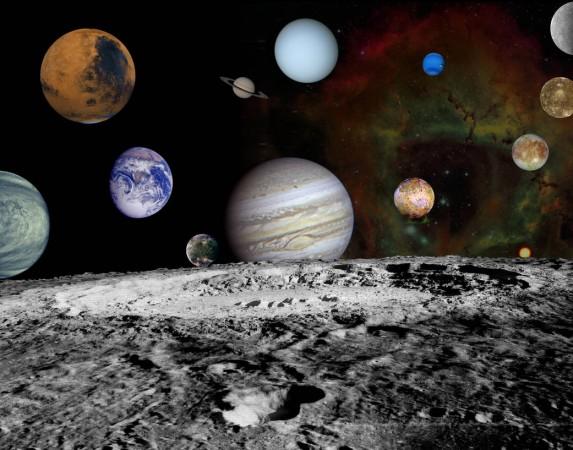
Earth's Moon will likely join a list of more than 100 planets that will be added to the solar system thanks to a manifesto proposed by NASA researchers.
Also Read: SpaceX CRS-10 mission: Watch the successful launch and landing of the Falcon 9 rocket! [VIDEO]
Apart from our Moon, Europa and Ganymede -- moons of gas giant Jupiter — and Titan and Enceladus -- the moons of Saturn, are likely to also be added as planets in the solar system, as, according to researchers, they possess features that a planet does.
This manifesto was proposed by lead investigator of NASA's New Horizons mission to Pluto, Alan Stern, along with five colleagues. The researchers want to rewrite the characteristics and definition of a planet, the Independent reported.
One of the major alterations the researchers made regarding the characteristics of a planet is that it's not necessary that it must orbit the Sun, as per a report in The Times.
If the International Astronomical Union (IAU) accepts the new guidelines, the present solar system will have over a 100 more planets added to the exisiting eight.
"In the mind of the public, the word 'planet' carries a significance lacking in other words used to describe planetary bodies...many members of the public assume that alleged 'non-planets' cease to be interesting enough to warrant scientific exploration," the NASA team wrote in their manifesto, a report by the Independent stated.
More than 100 new planets have been discovered by astronomers thus far, along with a planet referred to as super-Earth. The super-Earth, dubbed -- Gilese 411b -- has the potential to sustain life. It is present in a star system, which is the fourth-closest to our Sun.
The astronomers have discovered a total of 114 planets thus far, out of which more than half are located in our solar neighbourhood, the Independent reported.
According to the IAU General Assembly, a celestial object is deemed to be a planet if...
- is massive enough to be rounded by its own gravity,
- is not massive enough to cause thermonuclear fusion, and
- has cleared its neighbouring region of planetesimals.









